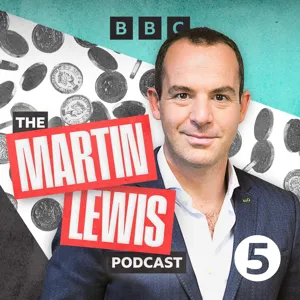Podcast Summary
Exploring LinkedIn for Hiring and Coping with the Cost of Living Crisis: Small businesses can find potential hires on LinkedIn, while individuals can manage finances during the cost of living crisis by taking steps to reduce expenses and increase income.
LinkedIn is an essential platform for small businesses looking to hire professionals. It offers access to a large pool of potential candidates, many of whom may not be actively seeking new jobs but could be open to the right opportunity. Additionally, LinkedIn users tend to spend a significant amount of time on the site, making it a more effective hiring tool compared to other job sites. On a different note, the cost of living crisis is causing financial strain for many individuals, particularly those on lower incomes. Young people are disproportionately affected by rising prices, and some feel helpless in the face of increasing expenses. Inflation, higher taxes, and increased household bills are all contributing factors. However, there are steps individuals can take to manage their finances during this challenging time, which will be explored in the Money Clinic podcast. In the meantime, consider hiring professionally on LinkedIn to help grow your business, and celebrate Mother's Day by ordering thoughtful gifts from 1 800 Flowers to show appreciation for the amazing moms in your life.
Unexpected expenses and rising living costs can impact savings: Unexpected expenses and rising living costs can derail even the most carefully planned budgets. Build an emergency fund to prepare for the unexpected.
Moving to a new city or experiencing rising living costs can significantly impact one's budget and savings, even for those who are already careful with their spending. Take the case of Lil, a young professional who moved from Liverpool to London. Although she was careful with her money and tried to save 10% of her income each month, the higher cost of living in London and a lower salary forced her to dip into her savings to cover unexpected expenses. The cost of essentials like rent and food has gone up, making it harder for her to save. Small things, like a stolen bike or a price increase in a jar of pesto, can add up and wipe out her ability to save. To cope, she's cutting back on non-essential spending, such as clothes and holidays. The lesson here is that unexpected expenses and rising living costs can easily derail even the most carefully planned budgets. It's essential to build up an emergency fund and be prepared for the unexpected.
Struggling with rising costs of living: Rising costs of living, taxes, and expenses put financial pressure on individuals, especially younger generations, leading to concerns about savings, maintaining quality of life, and finding ways to save on necessities.
The cost of living is increasing significantly for many people, particularly those in the lower to middle income brackets. The upcoming tax rises, including National Insurance and student loan repayments, will put additional financial strain on individuals, especially younger generations trying to buy homes or pay off debts. The increasing cost of living, coupled with the competitive job market and rising expenses like energy bills, can lead to significant financial and emotional pressure. It was expressed that understanding how much to save, maintaining a balance between quality of life and finances, and finding ways to save money on necessities like groceries are some of the key concerns for those feeling the impact of these changes. The conversation also highlighted the frustration that those facing these financial challenges are not the primary contributors to these economic decisions.
Examining past spending and setting budget goals: Analyze past expenses, establish realistic savings targets, and adjust your budget as needed to manage your finances effectively.
Understanding your current financial situation and creating a budget are crucial steps to help cope with the rising cost of living. The government is providing some relief through rebates and tax credits, but it's essential to have a clear picture of your spending habits and set achievable goals. For those new to budgeting, start by examining past bank statements and setting small, manageable savings targets. Remember, your budget is a work in progress, and it's essential to be kind to yourself and adjust it as needed. By taking control of your finances, even in small ways, you'll feel more empowered and better equipped to navigate the challenges ahead.
Consider earning more instead of relying on savings for long-term financial solutions: Explore ways to increase income and prioritize spending to improve financial situation, rather than solely relying on savings for unexpected expenses or long-term goals.
While it's understandable to dip into savings during unexpected financial emergencies, it's essential to remember that savings are not a long-term solution. To improve your financial situation, consider earning more money through asking for a pay raise, joining a union, taking on overtime, or starting a side hustle. On the spending side, setting boundaries and having a good social life on a tight budget can be challenging, but it's important to prioritize and make intentional choices. For young people, starting small with savings, even if it's just 1%, and setting clear financial goals can help build good habits and improve overall financial well-being.
Effective Food Management for Significant Savings: Planning meals, utilizing leftovers, and overlapping ingredients can lead to significant savings on food expenses, contributing to financial independence.
Managing food expenses effectively can lead to significant savings and financial independence. Food is often overlooked as a major expenditure, second only to housing costs. By planning meals and utilizing leftovers creatively, individuals can make the most of their food budgets and reduce overall spending. Chef Miguel Barclay, an expert in affordable meals, recommends planning meals for the week, utilizing leftovers, and overlapping ingredients to save money. By being mindful of food expenses and planning ahead, individuals can make a big impact on their financial situation.
Meal planning and smart grocery shopping tips: Use rice as a base ingredient, avoid pre-prepared items, shop once a week, and consider vegetarian or vegan options for cost savings and sustainability
Meal planning and smart grocery shopping can help individuals save money on their weekly food expenses. Miguel, a chef, shared his tips on this topic, including using rice as a base ingredient to fill you up and supplementing it with other inexpensive ingredients. He also advised against buying pre-prepared items as you're essentially paying for someone's labor. With the cost of living crisis, some 1 pound meals may now cost a little more, making meat an unaffordable option for some. Miguel's cookbooks progress from meat-oriented meals to vegan and meat-free options, and he emphasizes the sustainability benefits of this type of cooking. The expert recommends shopping once a week to save money, although he admits he doesn't always follow his own advice. Overall, Miguel's advice can help individuals save money on their food expenses while also promoting sustainable cooking practices.
Boosting Confidence in Managing Finances: Understand past expenses, set achievable goals, monitor progress, and team up with friends for a fun and engaging approach to budgeting and saving money.
Charlotte's advice on budgeting and setting achievable goals can help individuals gain a better understanding of their spending habits and boost their confidence in managing finances, even during challenging economic times. By looking back on past expenses and choosing specific actions to focus on each month, individuals can make informed decisions and save money in a fun and engaging way. This approach not only helps in monitoring expenses but also provides a sense of accomplishment and positivity. Additionally, teaming up with friends to set and achieve financial goals can make the process more enjoyable. Overall, this advice equips individuals with the knowledge and motivation to handle financial pressures and navigate economic changes with confidence.
Exploring the impact of AI on society: Effective communication, ethical considerations, interdisciplinary collaboration, and realistic expectations are crucial for developing and deploying AI that benefits everyone.
Effective communication is key to understanding complex topics. During our discussion, we explored various aspects of artificial intelligence and its potential impact on society. We touched upon the importance of transparency in AI systems, as well as the need for clear and concise language when explaining these technologies to the public. Moreover, we emphasized the importance of considering ethical implications when developing and deploying AI. We acknowledged that there are both benefits and risks associated with AI, and that it's crucial to approach this technology with a critical and thoughtful mindset. Another key point we discussed was the importance of collaboration between different fields, such as computer science, philosophy, and sociology, in order to fully understand the implications of AI. By working together, we can ensure that AI is developed in a way that benefits everyone, rather than just a select few. Lastly, we acknowledged that there are challenges and limitations to AI, and that it's important to be aware of these limitations in order to avoid unrealistic expectations. In short, effective communication, ethical considerations, interdisciplinary collaboration, and realistic expectations are all crucial elements in the development and deployment of AI.






